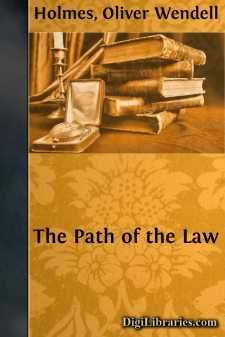History
- Africa 30
- Americas (North Central South West Indies) 50
- Ancient 68
- Asia 58
- Australia & New Zealand 8
- Canada 41
- Caribbean & West Indies 1
- Civilization 20
- Eastern Europe 12
- Europe 310
- Expeditions & Discoveries 60
- General 77
- Historical Geography 1
- Jewish 9
- Latin America 3
- Medieval 8
- Middle East 14
- Military 248
- Revolutionary 8
- Study & Teaching 5
- United States 353
- Western Europe 56
- World 13
History Books
Sort by:
MAPS TO VOLUME I. Pains have been taken to embody in the maps all topographical information existing up to date. A very considerable amount of valuable triangulation has been executed over portions of South Africa, but no systematic detailed survey has ever been made by any of the South African colonies or states. Maps have, however, been compiled by both Cape Colony and Natal. The former has prepared...
more...
PREFACE It is very difficult to write a preface to a work which is expressly intended as a revelation of the faith of the writer. The successive stages of thought and emotion that have been passed through are still too near, and one feels too deeply. I have made several futile attempts to concentrate into a short note the Truths about Woman that I have tried to convey in my book. I find it impossible...
more...
CHAPTER I. I was fifteen years of age when I was appointed reader to Mesdames. I will begin by describing the Court at that period. Maria Leczinska was just dead; the death of the Dauphin had preceded hers by three years; the Jesuits were suppressed, and piety was to be found at Court only in the apartments of Mesdames. The Duc de Choiseuil ruled. Etiquette still existed at Court with all the forms it...
more...
CHAPTER I—THE DISCOVERY OF PREHISTORIC EGYPT During the last ten years our conception of the beginnings of Egyptian antiquity has profoundly altered. When Prof. Maspero published the first volume of his great Histoire Ancienne des Peuples des l'Orient Classique, in 1895, Egyptian history, properly so called, still began with the Pyramid-builders, Sne-feru, Khufu, and Khafra (Cheops and...
more...
by:
Flavius Josephus
PREFACE 1. Whereas the war which the Jews made with the Romans hath been the greatest of all those, not only that have been in our times, but, in a manner, of those that ever were heard of; both of those wherein cities have fought against cities, or nations against nations; while some men who were not concerned in the affairs themselves have gotten together vain and contradictory stories by hearsay,...
more...
10 HARVARD LAW REVIEW 457 (1897) When we study law we are not studying a mystery but a well-known profession. We are studying what we shall want in order to appear before judges, or to advise people in such a way as to keep them out of court. The reason why it is a profession, why people will pay lawyers to argue for them or to advise them, is that in societies like ours the command of the public force...
more...
CHAPTER I—THE FEUDAL AGE It is a very common thing now-a-days to meet people who are going to "China," which can be reached by the Siberian railway in fourteen or fifteen days. This brings us at once to the question—What is meant by the term China? Taken in its widest sense, the term includes Mongolia, Manchuria, Eastern Turkestan, Tibet, and the Eighteen Provinces, the whole being...
more...
BARON BEYENSPolitical designs of Francis Ferdinand.The Archduke Francis Ferdinand will go down to posterity without having yielded up his secret. Great political designs have been ascribed to him, mainly on the strength of his friendship with William II. What do we really know about him? He was strong-willed and obstinate, very Clerical, very Austrian, disliking the Hungarians to such an extent that he...
more...









